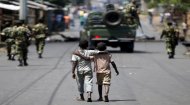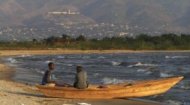Burundi NewsExplore the latest Burundi news and current events, the current state of press freedom in Burundi, including government influence, legal threats, and the role of independent media. The main Burundi news headlines are below however, you can also read news from each African country by using the drop-down menu. |
Burundi News |
Burundi News |
Burundi News | Burundi News |
Explore all about the small nation state of Burundi in a series of pictures, videos and images.
More >

|
The media landscape in Burundi is marked by a persistent tension between aspiration and reality. Since the resurgence of political instability in 2015, the environment for independent journalism has become acutely restrictive, despite constitutional guarantees that nominally protect freedom of the press. This disparity highlights how legal frameworks, while existing on paper, are frequently ignored or circumvented in practice when governance priorities conflict with independent scrutiny. The media ecosystem is sharply divided between state-owned outlets, which reliably disseminate the government's official narrative, and a scattering of private organisations attempting to maintain independence. The latter consistently face significant pressures, often resulting in self-censorship to avoid official rebuke. Authorities frequently employ vague legislation about defamation, public order, and national security to justify the harassment and prosecution of critical voices. Specific cases of repression are common, involving the arbitrary arrest and detention of reporters deemed unpatriotic or critical, and the forced closure or suspension of several prominent independent news agencies and radio stations that historically served as crucial sources of diverse information. Controlling the flow of information extends well beyond traditional threats. Like many modern governments seeking to manage public discourse, Burundian authorities utilise sophisticated digital tools for surveillance and control. Journalists often report being subject to digital monitoring, while targeted social media regulations and periodic internet blackouts are employed during politically sensitive periods to limit the organisation of protests and curb the rapid dissemination of unapproved news. These strategic disruptions effectively choke off independent reporting, further cementing the state's grip on the national narrative. When compared across the East African region, Burundi consistently ranks among the most challenging environments for reporters. While other neighbouring states face their own limitations on freedom of expression, the scale of media repression in Burundi, characterised by wholesale station shutdowns and a consistent stream of journalists fleeing into exile, marks it as particularly severe. |







